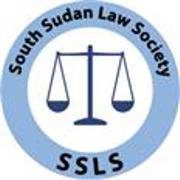Focal point
Location
The South Sudan Law Society (SSLS) is a civil society organization based in Juba. Its mission is to strive for justice in society and respect for human rights and the rule of law in South Sudan. The SSLS manages projects in a number of areas, including legal aid and paralegal training, human rights awareness-raising, and capacity-building for legal professionals, traditional authorities, and government institutions.
SSLS’s programs include:
Legal Aid
The SSLS manages a number of legal aid clinics that provide free legal advice, mediation and courtroom representation to clients who would otherwise be unable to afford these services.
Constitutional Development
In a project entitled, Towards the Constitution of ‘Zol Meskin’ (the ‘common person’ in Juba Arabic), the SSLS and a coalition of civil society organizations are advocating for a constitution and constitution-making process that reflects the hopes and aspirations of the South Sudanese people.
Land Rights in Transition
Through its research and advocacy, the SSLS sheds light on the interplay between land and power in postwar South Sudan.
Members:
Resources
Displaying 1 - 4 of 4Community Engagement Fundamentals
Pamphlet drawn from the (above) Handbook. Practical tips and step-by-step instructions can help companies to successfully negotiate lease agreements with landowning communities. They can help communities prepare for the changes that come with high impact projects and more effectively harness their benefits and also provide the government with a tool that can be used to promote responsible investment.
Handbook of Community Engagement. A ‘good practice’ guide to negotiating lease agreements with landowning communities in South Sudan
Includes setting the scene in South Sudan, key concepts and guiding principles, pre-investment planning, community consultation, participatory impact assessments, participatory monitoring, grievance mechanisms, community financial management, sample of community protocol.
SORF 2013-2015
General
On invitation by the local government, SORF will start to work in 5 new villages in two communes in Krakor District, Pursat province, a remote area of Social Land Concession. The direct target group is 150 poor households covering 600 people (360 women, 240 men).By December 2015, the following Outcomes will be achieved. 1. Te 150 selected poor households in the five target villages have increased their income from on- and off-farm Income Generating Activities (IGAs) by 20%. Destitute people have increased access to social protection mechanisms within the village (a Village Social Protection Committee will identify suitable sustainable IGAs). 2. The 150 poor households will have improved food security through more equitable access to agricultural opportunities (vegetable growing, livestock raising, etc.) and small business opportunities through the improved management of community resources (human, financial, natural resources). 3. The 150 poor families have demonstrated improved management of their households. 4. The 150 poor households have increased their voice and engaged in the development process through strengthened civil community structures and more responsive local government institutions. 5. The sub-national governments and civil society organisations concerned have increased their capacity and interactions on disaster risk reduction. 6. Existing models of Community Based Disaster Risk Reduction (CBDRR) are strengthened and consolidated for dissemination and replication in other disaster prone areas in Cambodia. 7. The 5 communities have increased awareness and have strengthened their resilience with respect to disasters and access to water by working in schools.
Master's Degree Program in Urban and Regional Development(2022)
General
To enhance participants knowledge and experience in the field of urban and regional development including master planning land use planning real estate and housing development urban redevelopment and new town development
Objectives
To enhance participants knowledge and experience in the field of urban and regional development including master planning land use planning real estate and housing development urban redevelopment and new town development



